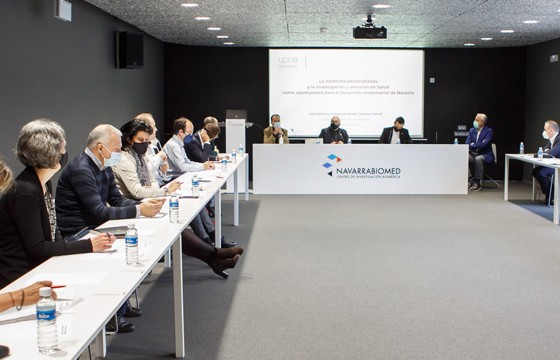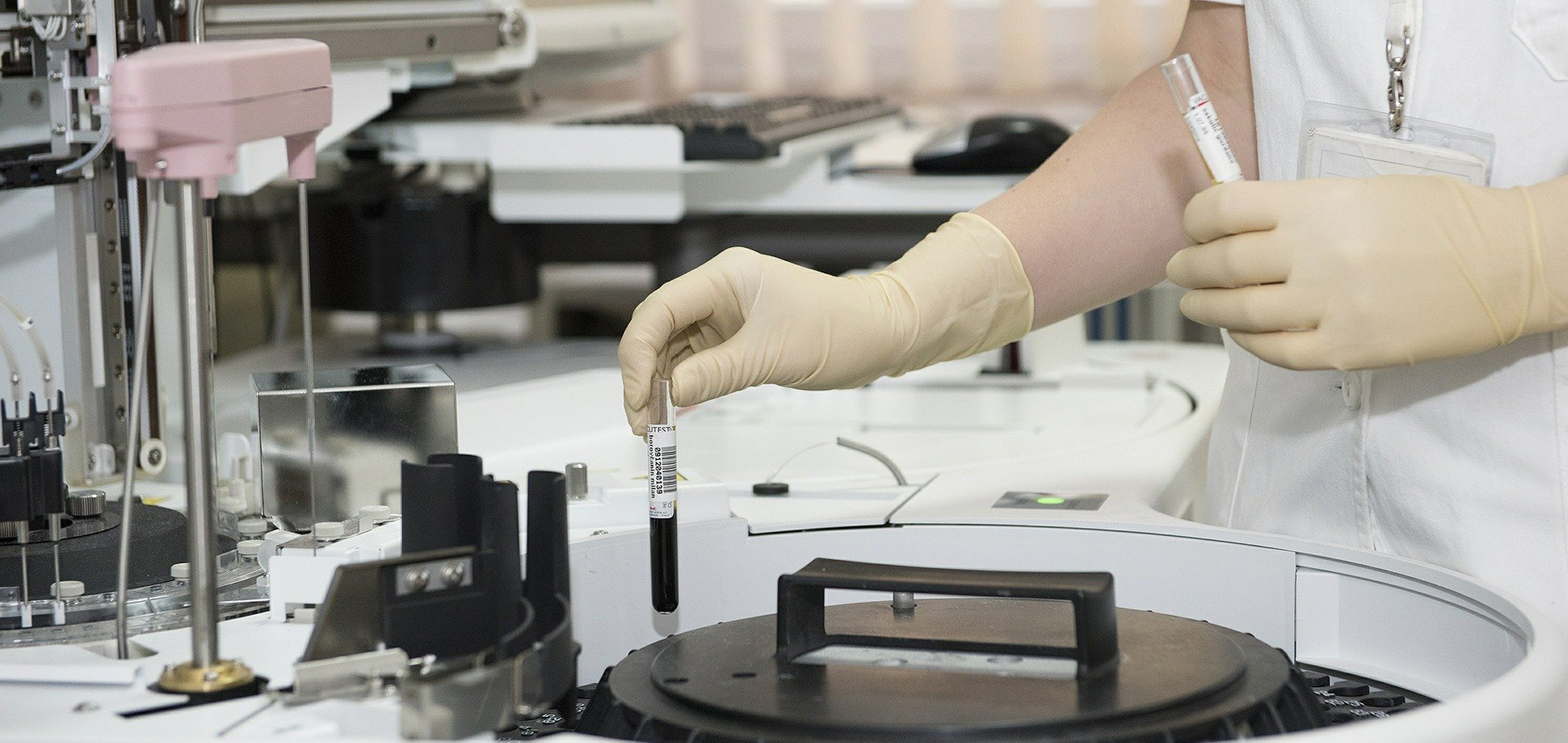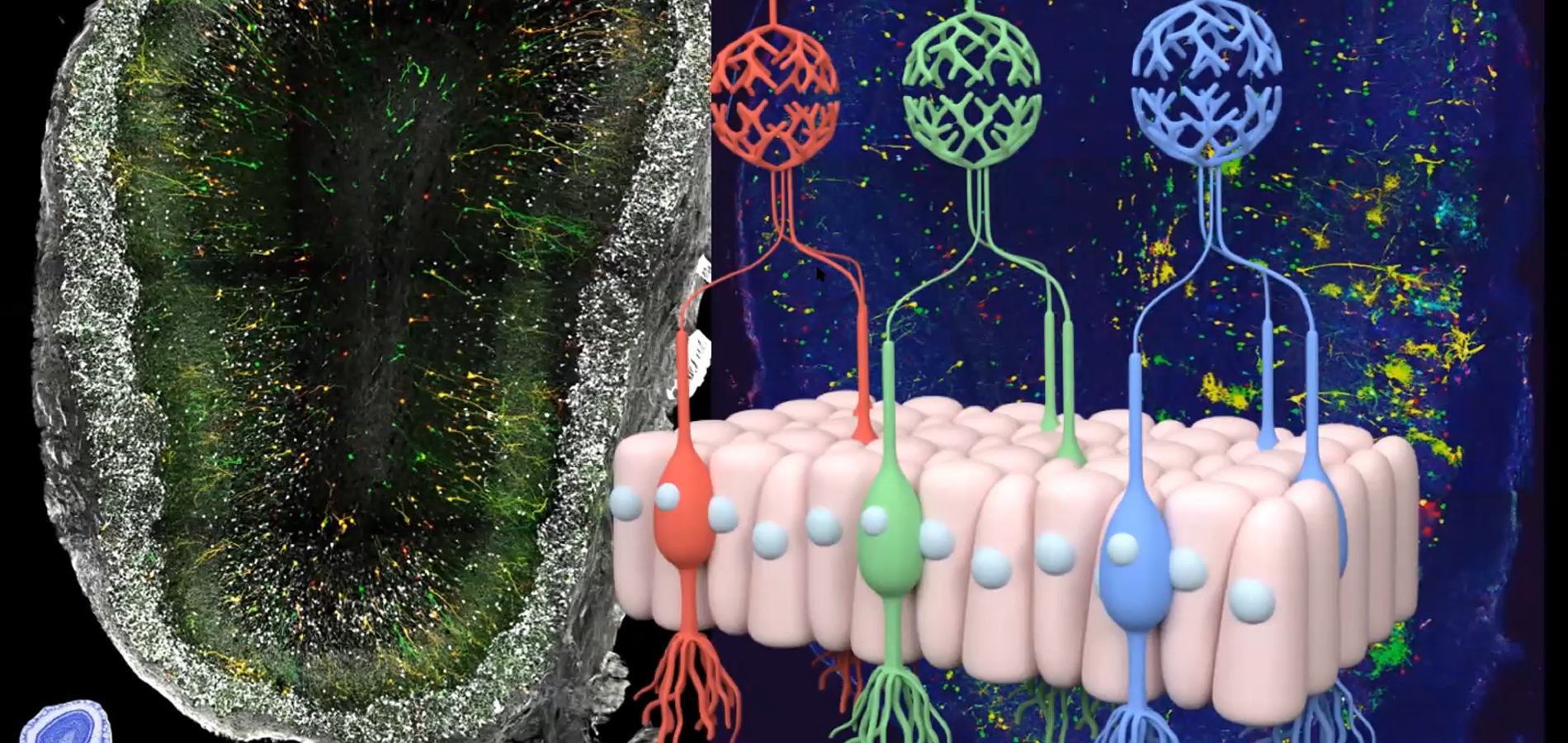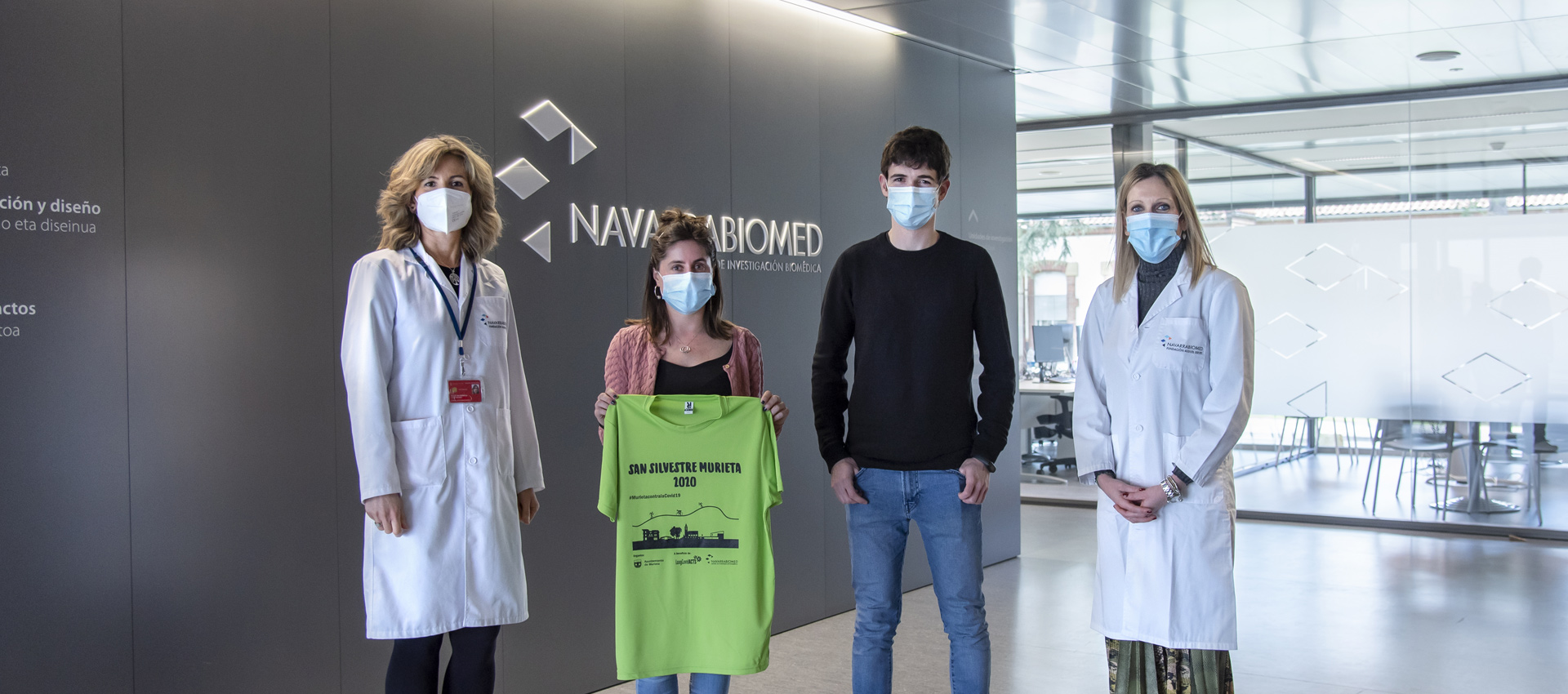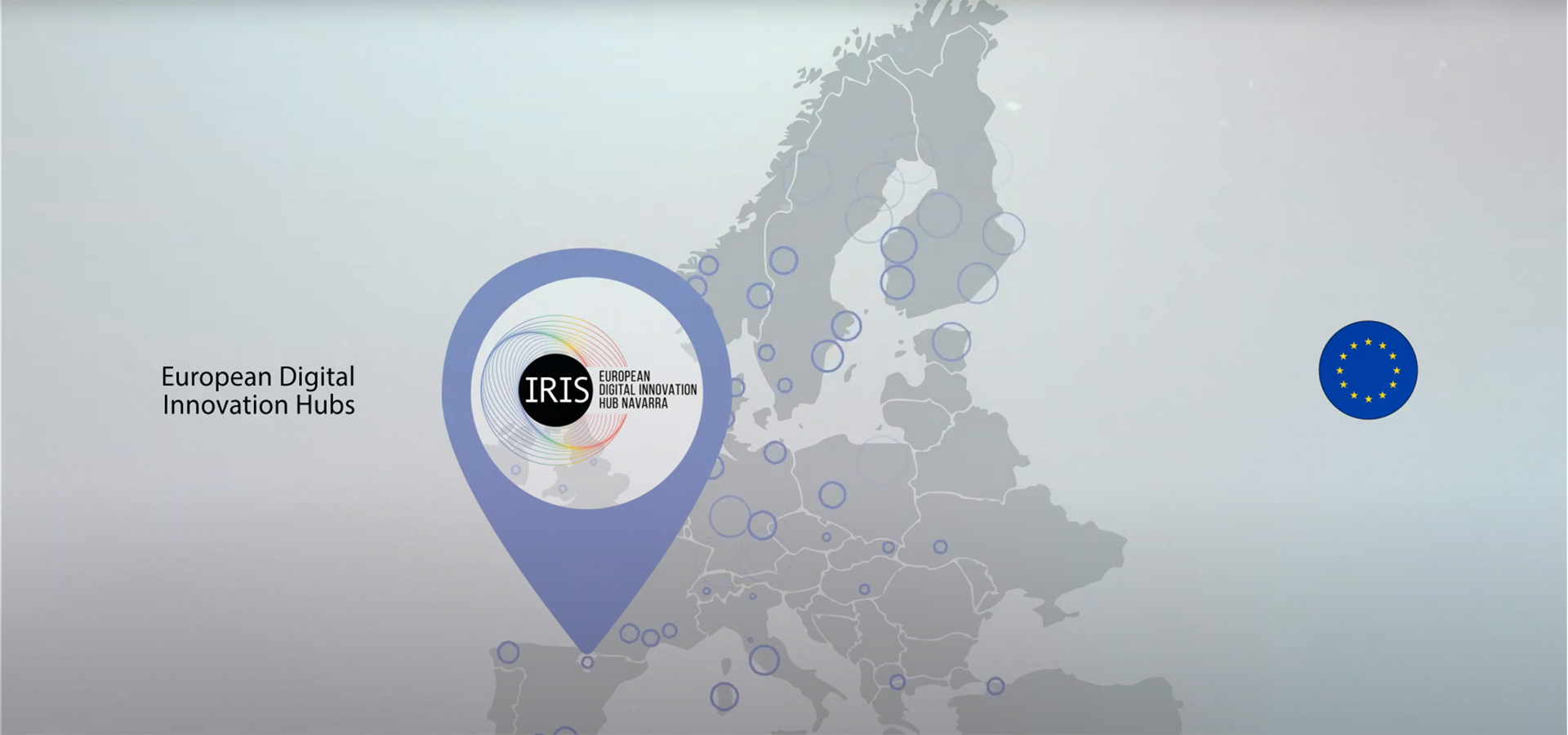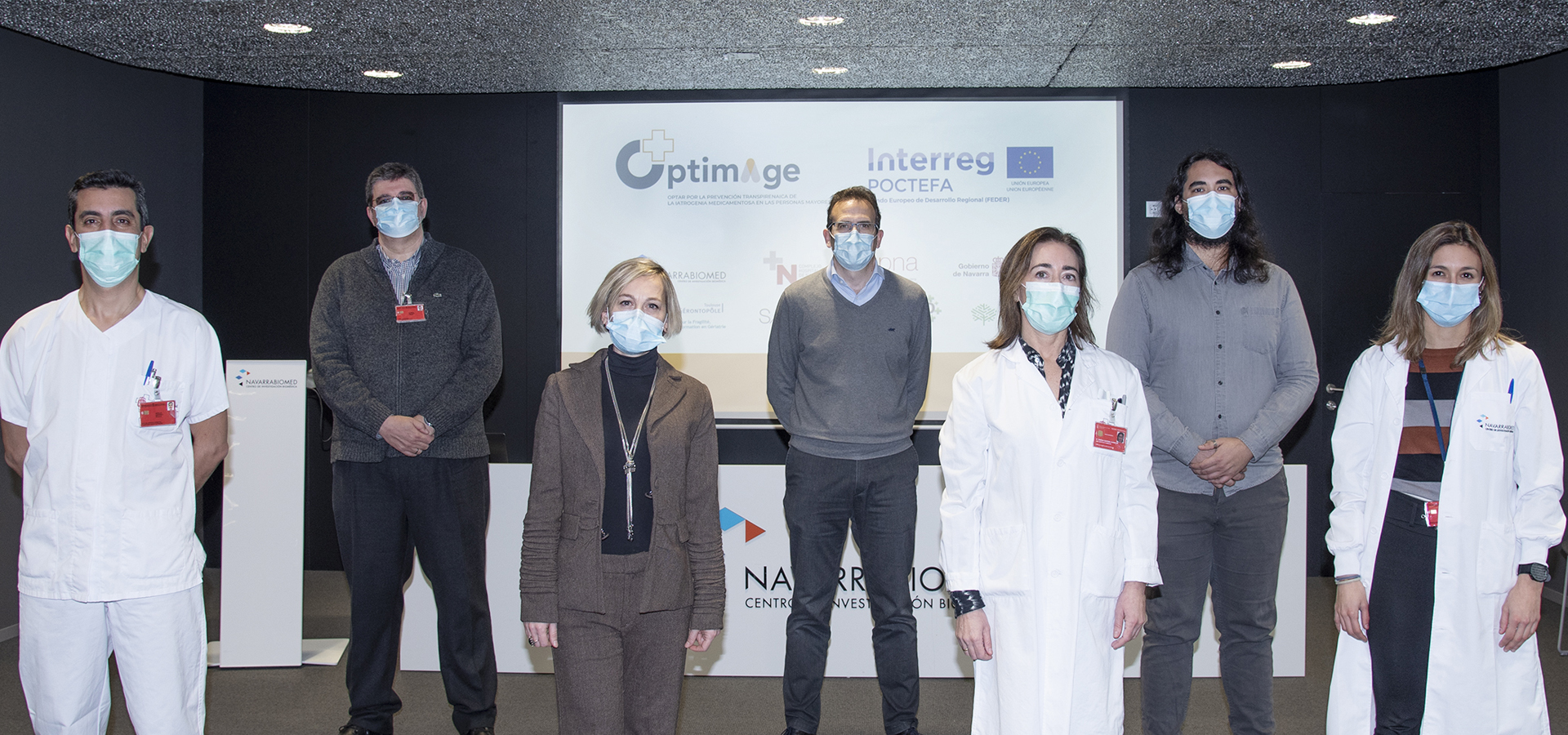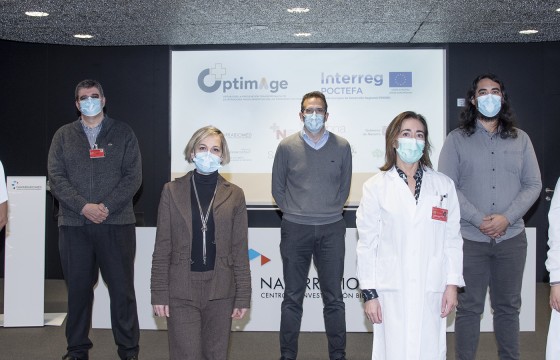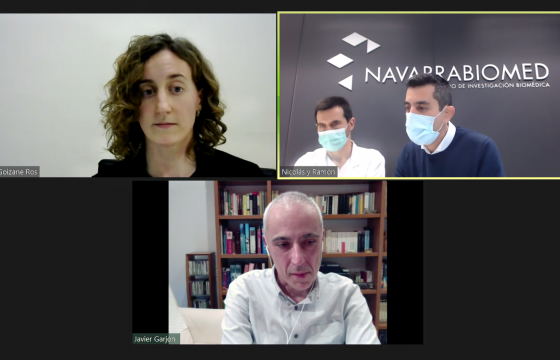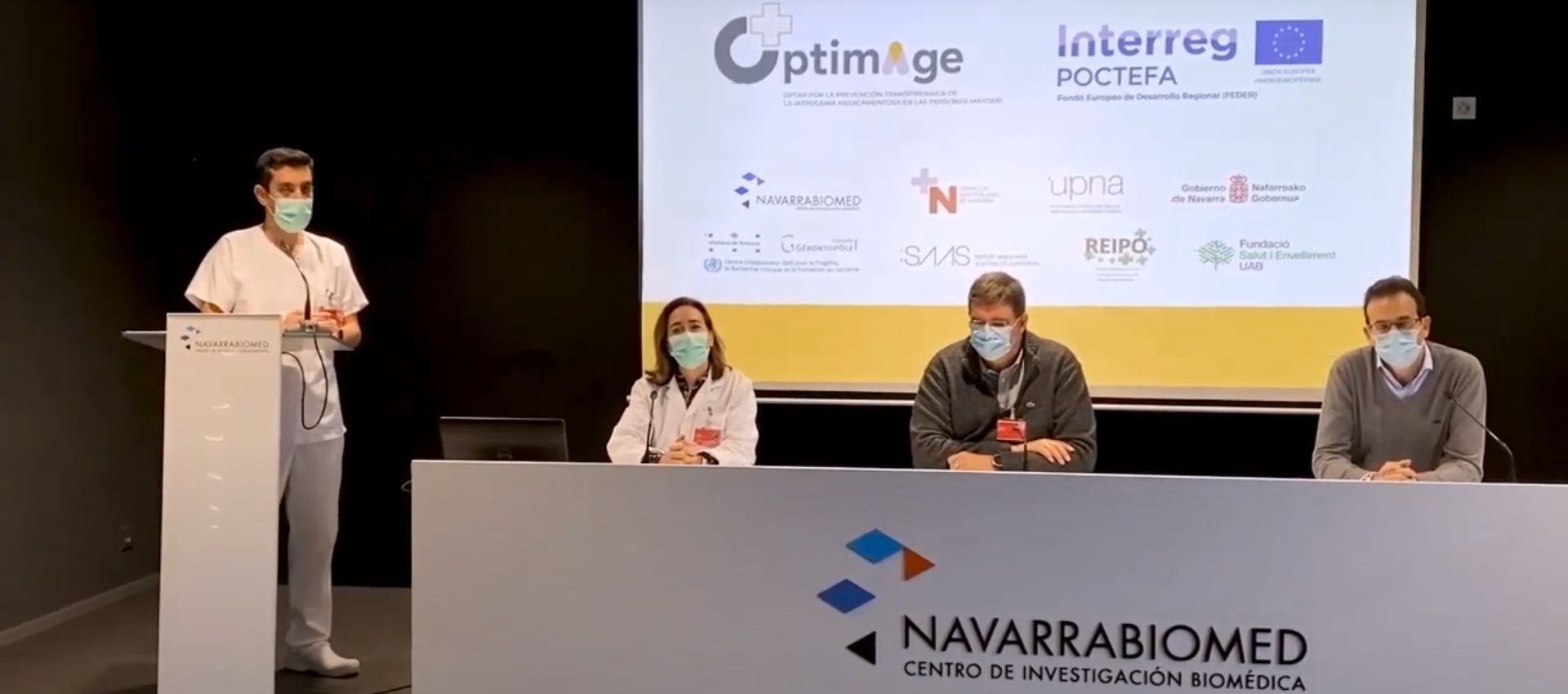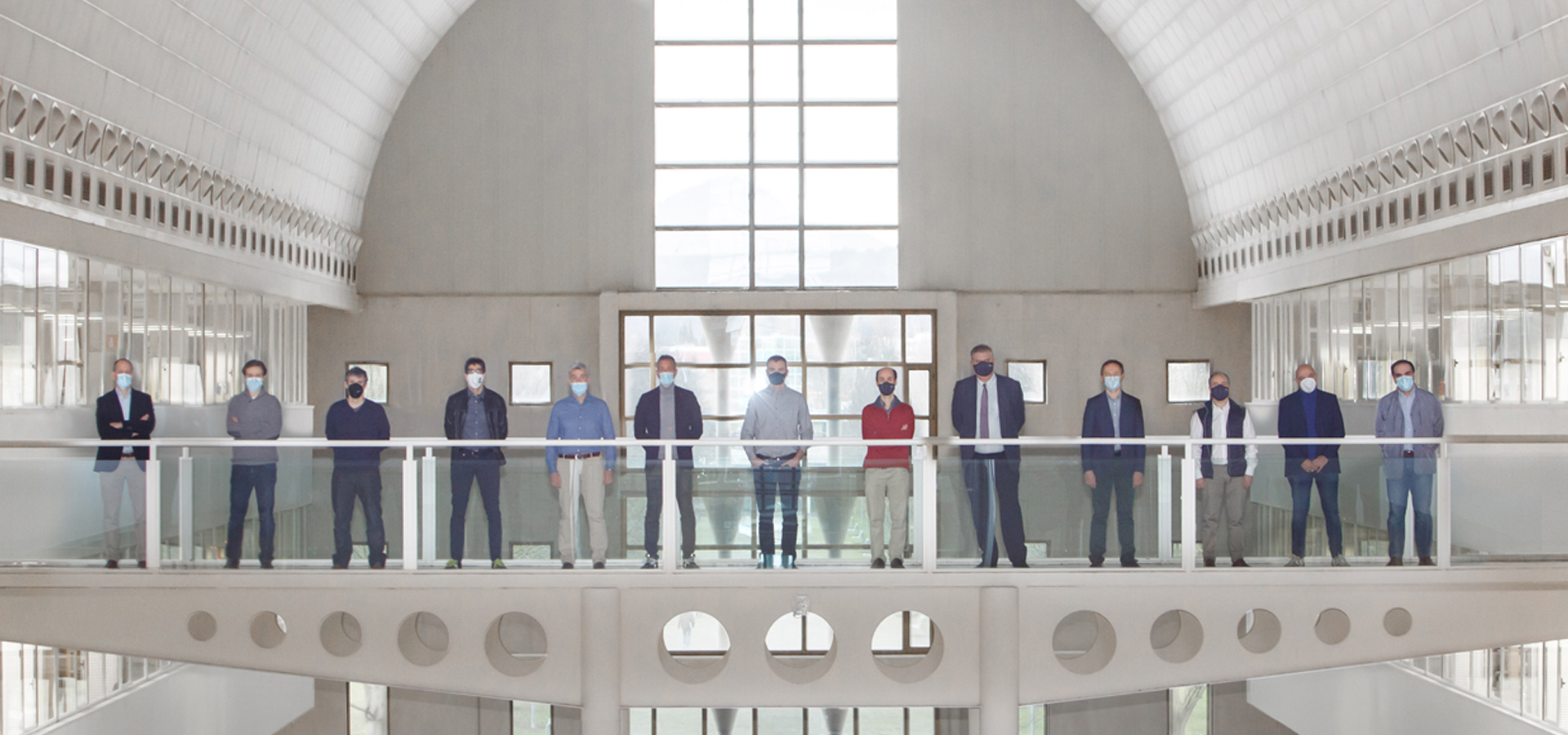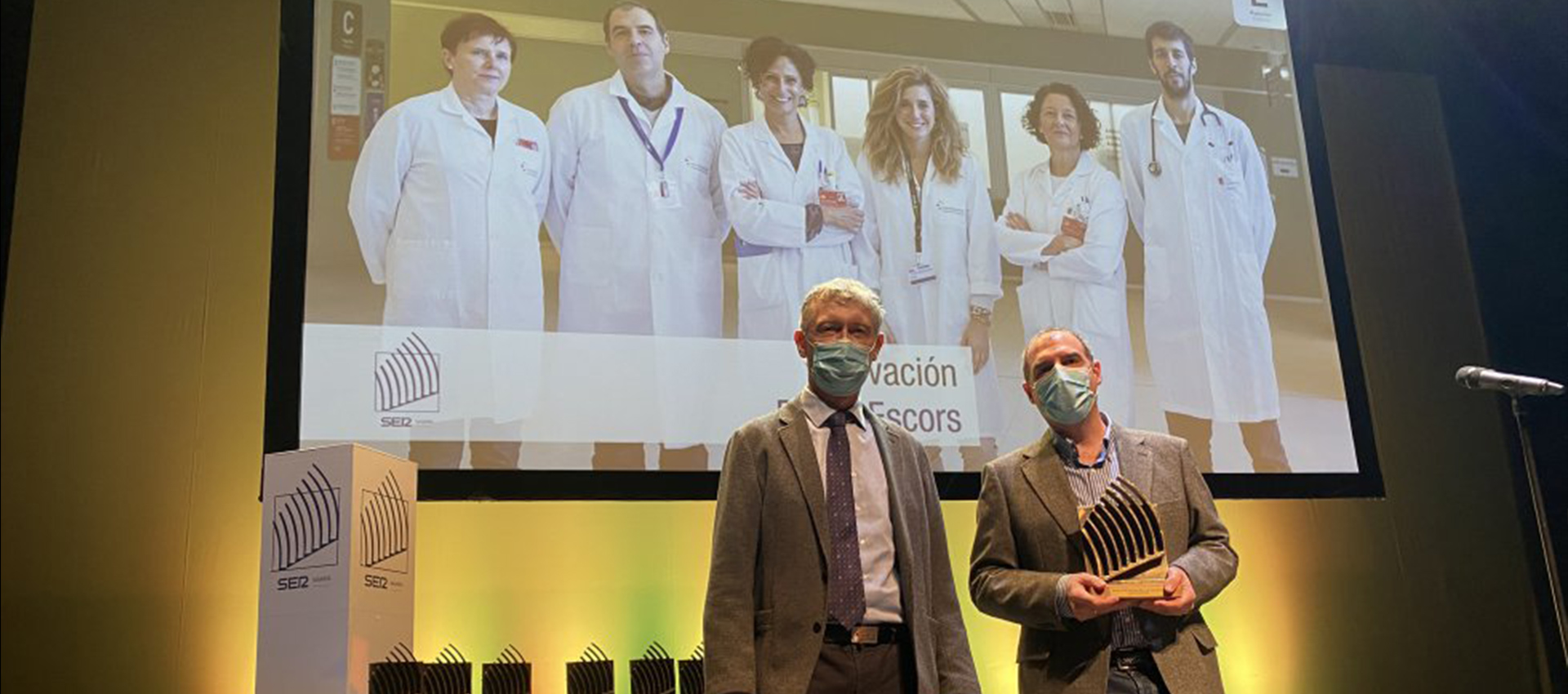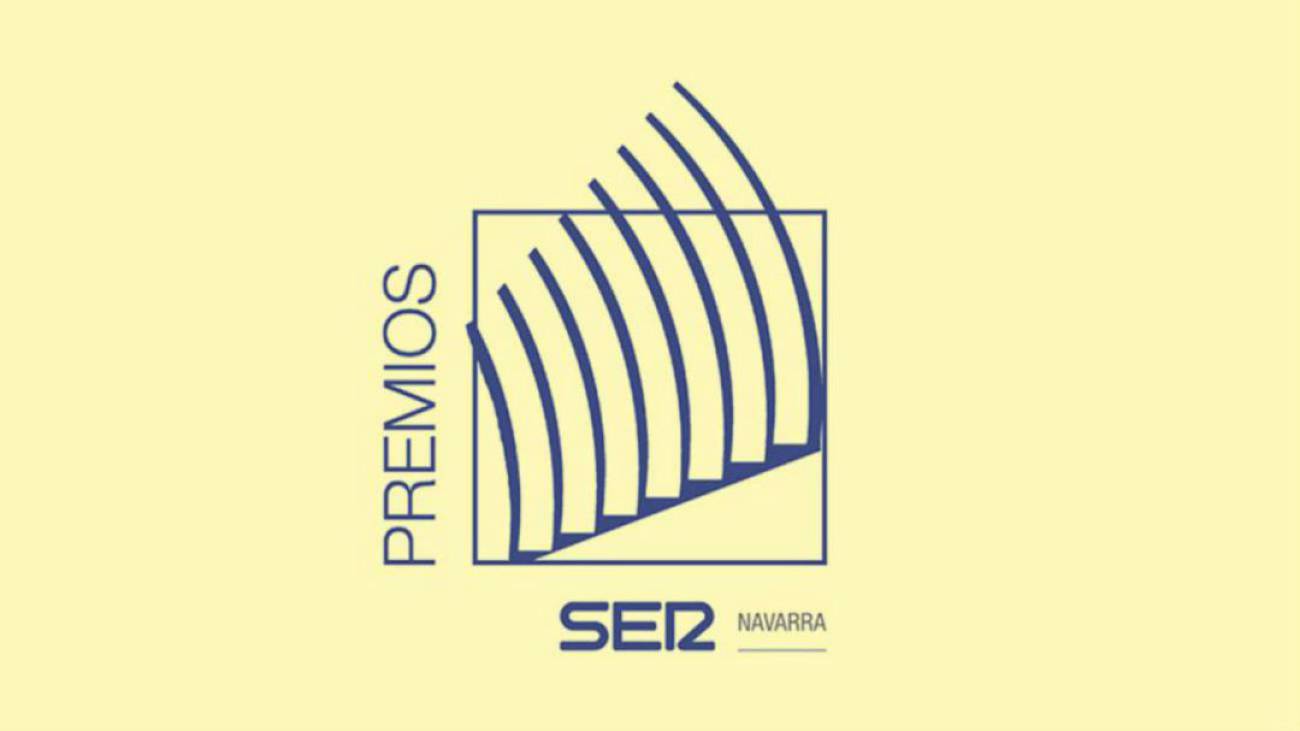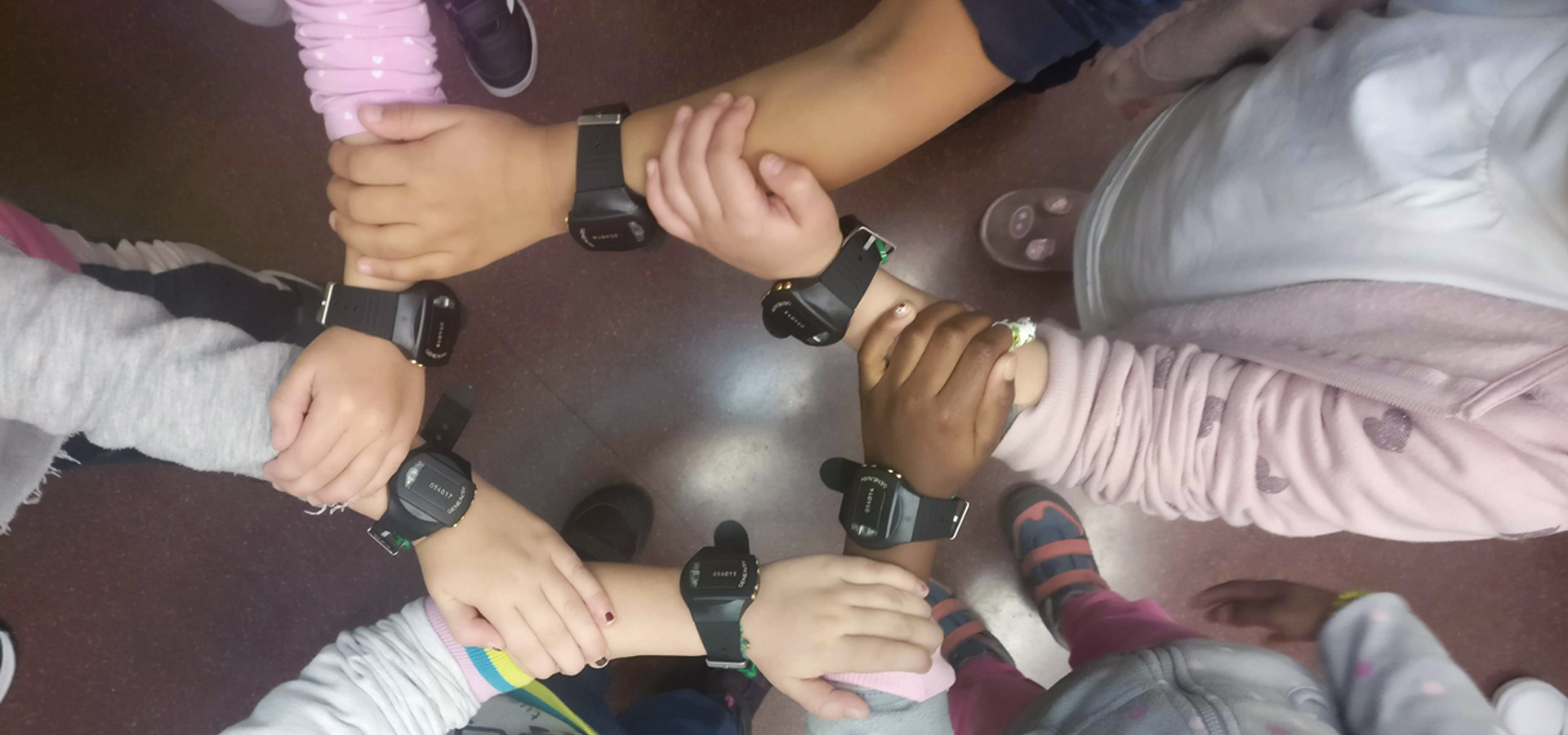El Foro Social y Empresarial celebra un encuentro sobre salud e investigación como oportunidad para el desarrollo empresarial
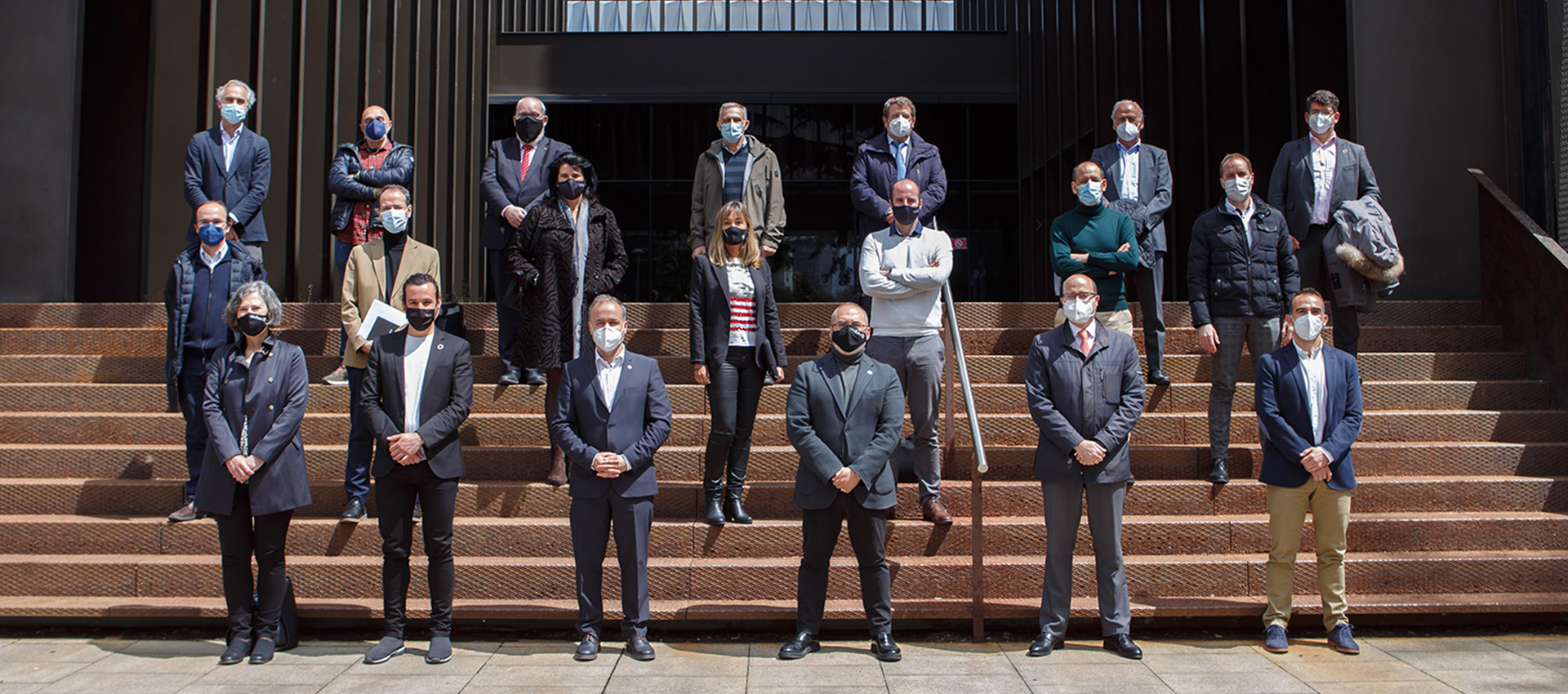
- La reunión, organizada por el Consejo Social de la UPNA, ha tenido lugar en la sede de Navarrabiomed
El Foro Social y Empresarial del Consejo Social de la Universidad Pública de Navarra (UPNA) ha celebrado esta mañana una reunión sobre “La medicina personalizada y la investigación y servicios en Salud como oportunidad para el desarrollo empresarial de Navarra”. El encuentro, presidido por el vicerrector de Investigación de la UPNA, Patxi Arregui, y el presidente del Consejo Social, Javier Vidorreta, ha tenido lugar en la sede de Navarrabiomed, centro mixto de investigación biomédica de Gobierno de Navarra y de la UPNA.
La reunión ha comenzado a las 12:00 horas con una breve intervención del presidente del Consejo Social, Javier Vidorreta, quien ha señalado que una de las principales funciones del citado consejo es “ayudar a conectar a la universidad con el entorno y eso se traduce en muchas acciones, como este Foro Social y Empresarial, una serie de encuentros y jornadas con los que brindamos la oportunidad de conectar a nuestros docentes e investigadores con los agentes más relevantes del tejido social y empresarial de nuestra comunidad”.
En concreto, ha recordado que esta jornada parte de una actividad anterior organizada por el Consejo Social en la que se trabajó sobre las oportunidades detectadas por las empresas en el campo de la medicina personalizada. “En esta ocasión ampliamos el campo de actuación y debatiremos sobre las diferentes oportunidades empresariales que puede encontrar Navarra en investigación e innovación tecnológica en diferentes ámbitos de la salud. Se trata de un tema alineado con uno de los sectores clave para Navarra recogido en la S3 y con los objetivos del plan estratégico de la UPNA en diferentes ámbitos de la formación y de la investigación, en campos como la medicina, ingeniería, ciencia de datos, biomedicina, fisioterapia, entre otros”.
A continuación y tras el saludo de Iñigo Lasa, director de Navarrabiomed, la sesión se ha centrado en la mesa redonda “Medicina personalizada, innovación en Salud y sector empresarial: la oportunidad de la cercanía”, en la que han intervenido Juan Cruz Cigudosa, consejero de Universidad, Innovación y Transformación Digital del Gobierno de Navarra; Ángel Alonso, responsable del programa NAGEN; y Carlos Artundo, director general de Salud.
En su intervención, el consejero ha puesto de manifiesto que Navarra se encuentra a la cabeza en esta materia, ya que es una de las capitales de la genómica a nivel estatal, y ha subrayado que será la primera región que contará con una Estrategia Integral de Medicina Personalizada de precisión a largo plazo, que incluye más de 50 acciones y cuyo objetivo final es “implementar esta nueva medicina que tiene en el centro, más que nunca, al paciente y su individualidad”.
En cuanto a sus expectativas sobre la colaboración público privada, Cigudosa ha afirmado que, por un lado, puede dar lugar a la generación de empresas con base tecnológica y, por otro lado, “las necesidades de este tipo de medicina también harán posible que empresas dedicadas, por ejemplo, a la digitalización se acerquen a Navarra buscando una oportunidad de negocio en colaboración con los centros que participan en la estrategia. Se trata de un sistema que se retroalimenta y que conforma a Navarra como un importante destino de innovación en salud”, ha añadido.
Posteriormente ha tenido lugar un debate abierto a todos los asistentes, y el presidente del Consejo Social, Javier Vidorreta, ha resumido y puesto en común las conclusiones de la jornada. Esta ha concluido a las 14:00 horas con unas palabras de despedida por parte del vicerrector Patxi Arregui y del consejero Juan Cruz Cigudosa.
El Foro Social y Empresarial
El Foro Social y Empresarial del Consejo Social de la UPNA promueve la participación y el asesoramiento social al citado consejo y en sus sesiones participan representantes del Consejo Social, del equipo rectoral, de la Fundación Universidad-Sociedad y profesionales relevantes del entorno de la universidad.
Desde su creación en 2010, este foro ha servido para debatir y proponer fórmulas sobre el modo de aproximar la UPNA a las necesidades de la sociedad, para introducir innovaciones en los métodos formativos, para fortalecer el empleo de los doctores en el mundo empresarial o para promover la presencia de las mujeres en el ámbito de las ciencias y la tecnología.

